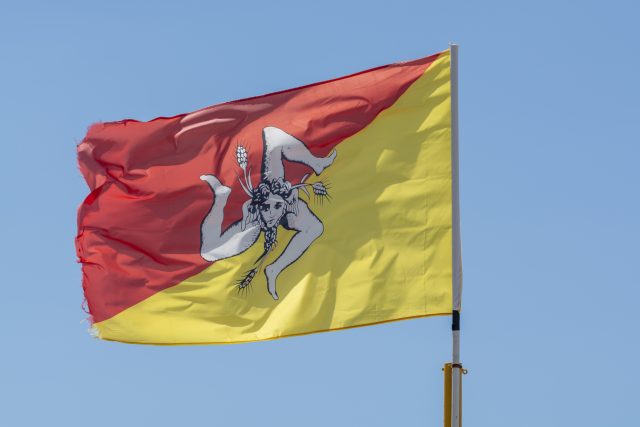Sicily’s 2023 harvest blighted by extreme weather
By Louis ThomasHeavy rainfall followed by a period of extreme heat in Sicily has cost some producers up to 40% of their crop, but expectations for the quality of the grapes are still high.

Sicily’s harvest, which lasts for more than 100 days due to the climatic and varietal diversity of the island, begins with the international white varieties (e.g.: Sauvignon Blanc and Chardonnay) in western Sicily. It typically concludes in Etna in late October.
This year, extreme weather has delayed the start of the harvest, meaning that it will be commencing approximately 10 days later than that of 2022.
Uncharacteristically heavy rainfall in May and June on both sides of the island dampened expectations for a mildew-less harvest.
Vittoria-based winemaker Arianna Occhipinti, who releases wines under her own label, added: “The start of downy mildew may impact our upcoming production for about 30-35%; the sulphur and copper treatments, the only treatments we carry out in the vineyard, in higher concentrations, were not enough to contain the problem. The 2023 harvest will be lower in quantity but higher in quality.”
For Vittoria, Planeta oenologist Patricia Toth suggested that the area above Marina di Acate had lower humidity, and therefore less risk of mildew, due to its sandy soils and exposure to sea breezes, creating conditions that are not conducive to fungal growth.
Producers around Mount Etna fared generally better overall due in part to the breezes and its volcanic soils.
Conditions then veered from one extreme to another as temperatures rocketed last month.
The heatwave that scorched Southern Europe in July was acutely felt in Sicily, with the mercury rising to the high forties. Fires broke out across the region, particularly around the major cities of Palermo and Catania:
Fire now choking Palermo in Sicily. pic.twitter.com/TGhB8s3lnt
Partner Content
— Brendan May (@bmay) July 25, 2023
In the last week, db spoke with a number of producers from across Sicily, all of whom said that, despite the dramatic scenes around the cities and in bushland, their vines were undamaged by the fires and that there has not been any noticeable smoke taint on the fruit.
But, although the vineyards seem to have largely dodged the fire, the grapes did not escape the frying pan-like conditions of the last month.
Filippo Buttafuoco, viticultural technician at cooperative Cantine Settesoli, said: “Right now, the quality of the grapes is excellent, since we managed the powdery mildew but due to the heat in the past weeks, we lost about 40% of the upcoming production.”
A spokesperson for Cantine Settesoli previously told db that it expected a slightly more moderate 30% loss of its total crop due to the heat.
Fortunately, the vines have, by and large, not been permanently damaged, according to Buttafuoco: “Since the temperatures dropped down, the unburned grapes are starting to regain strength so the overall drop could be lower. We are satisfied with how we managed the downy mildew issue, thanks to the help of weather huts that have the ability to electronically indicate the chance of the disease, avoiding irreparable damage.”
Mariangela Cambria, the newly-appointed president of Assovini Sicilia, acknowledged that it is too early to make an overall assessment: “It is still difficult and premature to make accurate estimates about the quantity and quality. Sicilian wine growers know how to manage the effect of climate change, focusing on quality and not quantity, thanks to increasingly sustainable agriculture and agronomic techniques.”
Despite the currently mixed picture for the 2023 vintage, some viticulturists argue that Sicily is one of the Italian regions best positioned to cope with these climate change-caused extreme conditions due to it possessing grape varieties that can tolerate the heat, as well as a number of vineyards planted in cooler, high altitude conditions.
Related news
Seven talking points from Vinitaly 2025 (apart from tariffs)
Why is volcanic wine getting people so hot under the collar?




